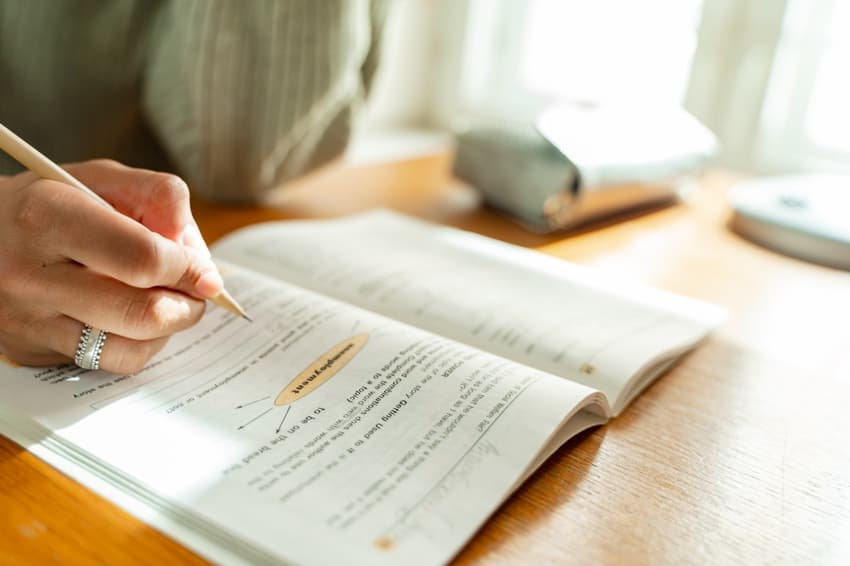Austria: Just how good does your German have to be to gain residency and citizenship?

A good knowledge of German is a pre-requisite for residency and citizenship - but how good does it have to be?
Austria is a German-speaking country. This means if you want to live in Austria on a long-term basis you will need a decent grasp of the language.
Almost any international resident in Austria will tell you that many people speak English, especially in places like Vienna. But to fully integrate into Austrian culture, German language skills are needed.
And for people that want to apply for permanent residency or citizenship in Austria, it’s a mandatory part of the process.
How good does my German have to be?
The 2011 Integration Agreement promotes the linguistic integration of international residents that want to live in Austria on a long-term basis. It applies to third country nationals (e.g. non-EU citizens).
When people first move to Austria with a residency permit they sign the Agreement with the Österreich Integration Fonds to commit to learning Level A2 German within two years. The aim is to ensure new residents in Austria can integrate and a big part of that is being able to communicate.
READ ALSO: EXPLAINED: What is the Austrian integration exam for non-EU nationals?
Module 1 of the Integration Agreement includes the Fit for Austria test (A1), which covers basic understanding and speaking in German. This is followed by the ÖIF test (A2).
Module 2 is non-compulsory and includes the German test for Austria (A2 / B1) and B2 ÖIF test.
Even if you work in English, or another language, it’s still important to become proficient in German. Especially if you plan to make a permanent home in Austria.

Learning German - how good does it have to be to become Austrian? Photo: DPA
What German language level is needed for permanent residency in Austria?
You can apply for permanent residency (Aufenthaltstitel Daueraufenthalt) in Austria after living in the country for five years. As part of the application process, you need German language skills at Level B1.
Level B1 is part of the Common European Framework of Reference for Languages (CEFR) of which there are six levels (A1 to C2).
B1 is a step above basic understanding and speaking (A2). It means you are an independent user of the German language and can understand the main points in conversations and in texts.
READ ALSO: What are the best German classes for you in Vienna?
According to the Goethe-Institut, Level B1 German also means you can express yourself simply about certain topics, and describe hopes and ambitions. It’s not a fluent level of language, but it’s deemed suitable to be able to live and work in Austria on a permanent basis.
The B1 German exam is split into four parts and involves reading (Lesen), listening (Hören), writing (Schreiben) and speaking (Sprechen) tests.
What German language level is needed for citizenship in Austria?
For permanent residents in Austria looking to become a citizen, there are a few prerequisites.
First, non-EU citizens must have lived in Austria for ten years with five of those as a permanent resident. EU citizens can apply for citizenship after six years of permanent residence. Plus, applicants will have to revoke their original citizenship.
Citizenship also requires Level B1 German. You can show proof of this if you have attended school or university in Austria.
READ ALSO: The seven stages of learning German every foreigner goes through
Alternatively, you can take the Integration Test, which includes a Level B1 German exam and a test about in-depth knowledge of Austrian values.
But if you have Level B2 German, or higher, you can bypass the Integration Test. As long as you have a B2 certificate from a recognised language school to prove your language skills.
What is the difference between B1 and B2 German?
B2 German is considered an advanced level of language capability. It means you can understand the main parts of complex texts and have technical discussions in your area of expertise.
At Level B2 you can have conversations with native speakers almost fluently and express your opinion on current affairs. It’s a much more accomplished level of language skills, which is important for people that are becoming a citizen of a German-speaking country.
For more information
There is plenty of help available for people living in Austria that want to improve their German for permanent residency or citizenship applications.
For more information, visit the links below:
Comments
See Also
Austria is a German-speaking country. This means if you want to live in Austria on a long-term basis you will need a decent grasp of the language.
Almost any international resident in Austria will tell you that many people speak English, especially in places like Vienna. But to fully integrate into Austrian culture, German language skills are needed.
And for people that want to apply for permanent residency or citizenship in Austria, it’s a mandatory part of the process.
How good does my German have to be?
The 2011 Integration Agreement promotes the linguistic integration of international residents that want to live in Austria on a long-term basis. It applies to third country nationals (e.g. non-EU citizens).
When people first move to Austria with a residency permit they sign the Agreement with the Österreich Integration Fonds to commit to learning Level A2 German within two years. The aim is to ensure new residents in Austria can integrate and a big part of that is being able to communicate.
READ ALSO: EXPLAINED: What is the Austrian integration exam for non-EU nationals?
Module 1 of the Integration Agreement includes the Fit for Austria test (A1), which covers basic understanding and speaking in German. This is followed by the ÖIF test (A2).
Module 2 is non-compulsory and includes the German test for Austria (A2 / B1) and B2 ÖIF test.
Even if you work in English, or another language, it’s still important to become proficient in German. Especially if you plan to make a permanent home in Austria.

Learning German - how good does it have to be to become Austrian? Photo: DPA
What German language level is needed for permanent residency in Austria?
You can apply for permanent residency (Aufenthaltstitel Daueraufenthalt) in Austria after living in the country for five years. As part of the application process, you need German language skills at Level B1.
Level B1 is part of the Common European Framework of Reference for Languages (CEFR) of which there are six levels (A1 to C2).
B1 is a step above basic understanding and speaking (A2). It means you are an independent user of the German language and can understand the main points in conversations and in texts.
READ ALSO: What are the best German classes for you in Vienna?
According to the Goethe-Institut, Level B1 German also means you can express yourself simply about certain topics, and describe hopes and ambitions. It’s not a fluent level of language, but it’s deemed suitable to be able to live and work in Austria on a permanent basis.
The B1 German exam is split into four parts and involves reading (Lesen), listening (Hören), writing (Schreiben) and speaking (Sprechen) tests.
What German language level is needed for citizenship in Austria?
For permanent residents in Austria looking to become a citizen, there are a few prerequisites.
First, non-EU citizens must have lived in Austria for ten years with five of those as a permanent resident. EU citizens can apply for citizenship after six years of permanent residence. Plus, applicants will have to revoke their original citizenship.
Citizenship also requires Level B1 German. You can show proof of this if you have attended school or university in Austria.
READ ALSO: The seven stages of learning German every foreigner goes through
Alternatively, you can take the Integration Test, which includes a Level B1 German exam and a test about in-depth knowledge of Austrian values.
But if you have Level B2 German, or higher, you can bypass the Integration Test. As long as you have a B2 certificate from a recognised language school to prove your language skills.
What is the difference between B1 and B2 German?
B2 German is considered an advanced level of language capability. It means you can understand the main parts of complex texts and have technical discussions in your area of expertise.
At Level B2 you can have conversations with native speakers almost fluently and express your opinion on current affairs. It’s a much more accomplished level of language skills, which is important for people that are becoming a citizen of a German-speaking country.
For more information
There is plenty of help available for people living in Austria that want to improve their German for permanent residency or citizenship applications.
For more information, visit the links below:
Join the conversation in our comments section below. Share your own views and experience and if you have a question or suggestion for our journalists then email us at [email protected].
Please keep comments civil, constructive and on topic – and make sure to read our terms of use before getting involved.
Please log in here to leave a comment.